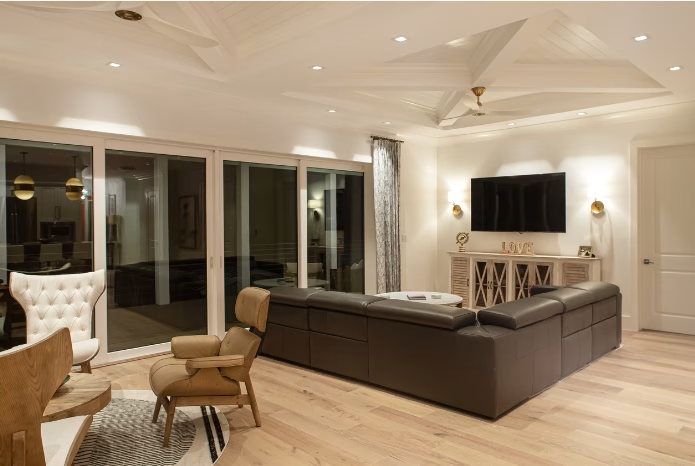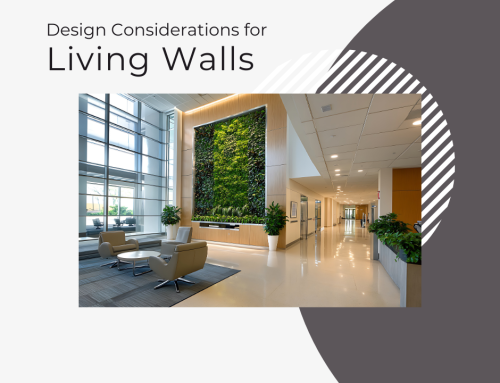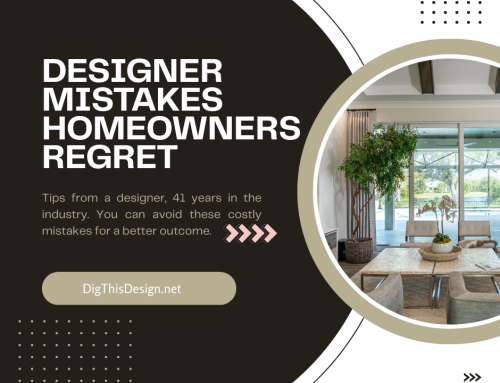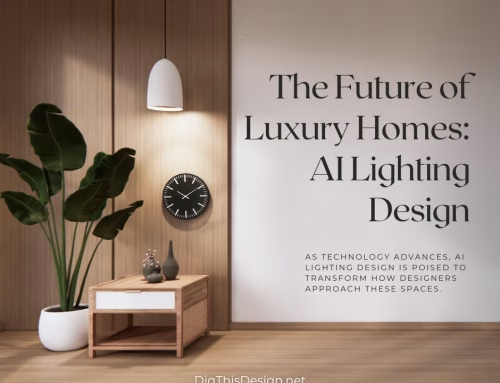Bringing our talents together after decades of individual careers has been one of the most rewarding chapters of our lives. After 35 years of marriage, my husband, Lee, and I found ourselves standing at a crossroads where experience, trust, and shared vision converged.
What began as a leap of faith has evolved into a deeply personal journey centered on luxury builds in the Bahamas, shaped by craftsmanship, design discipline, and a profound respect for place.
Bringing Our Talents Together: Doing Luxury Builds in the Bahamas
For more than 40 years, I have worked as an interior designer, collaborating closely with clients to bring their homes to life. Lee, meanwhile, spent his career in finance, but always held a general contractor’s license and an unfulfilled dream of building.
When a friend invited us to Treasure Cay after Hurricane Dorian to assess the devastation, neither of us expected that trip to change the trajectory of our future. Amid the destruction, we fell in love with a hurricane-damaged home overlooking Abaco Bay, captivated by endless blue and green water stretching to the horizon.
That moment planted the seed for what would become our first shared endeavor in luxury builds in the Bahamas.

Rebuilding that home was the first full project we completed together. It revealed just how seamlessly our skills aligned. Lee executed my design vision with precision and respect, translating concepts into structure without compromise.
The experience was so successful that, before we had even settled into our dream home, someone approached us with an offer to buy it. Letting go was difficult, but knowing Lee was willing and eager to do it again made the decision possible. That sale marked the true beginning of our path into luxury builds in the Bahamas as partners.
Our next project, Porpoise Point, allowed me an uncommon level of creative freedom. Without a client dictating preferences, I could focus entirely on thoughtful architecture and interior balance.
Window placement became a priority, ensuring that every room captured the water views that define life on Abaco Bay. In many island homes, windows are undersized or poorly positioned, often disrupting furniture layouts and diminishing the experience of the space.
I wanted the views to feel intentional, expansive, and harmonious, an essential principle we now apply across all of our luxury builds in the Bahamas.

Turtle Pass – Treasure Cay, Bahamas, Designed by Patricia Davis Brown Designs, LLC.
Equally important was redefining coastal design. Rather than relying on predictable, overly themed décor, I pursued a sophisticated transitional style with subtle coastal references.
Custom ceiling treatments with an “X” pattern, layered textures, and a soft palette inspired by the surrounding sea and sky helped bring the outside in without overpowering the interiors. These details are not decorative afterthoughts; they are integral to how our luxury builds in the Bahamas feel to live in.

Lee added his own surprise to Turtle Pass by creating a private beach lined with palm trees and a dock extending into Abaco Bay. That dock became my sanctuary, a place for morning yoga as turtles and sea life glided beneath the surface. It was there that I fully understood the emotional dimension of what we were building. This was more than a house; it was a shared vision realized through luxury builds in the Bahamas.

Private Beach, Designed by Lee Brown Construction
Today, we are constructing our second Abaco Bay home, Porpoise Point, located on a peninsula at the entrance to the harbor. The views shift throughout the day: boats entering the harbor from the front porch, distant islands visible from the kitchen, and uninterrupted bay vistas from the great room and primary bedroom.
This home elevates our approach to luxury builds in the Bahamas, featuring high-end appliances, a spa-like primary bathroom, and refined finishes throughout.
Porpoise Point – The Best Views on the Island
Animated 3D View
What distinguishes Porpoise Point is its versatility. A full downstairs apartment that sleeps four transforms the home into an exceptional luxury rental opportunity, appealing to investors without sacrificing design integrity. This thoughtful blend of lifestyle and function reflects how we continue to evolve within luxury builds in the Bahamas. This new home sleeps up to 10 people.
This page allows you to follow along with Porpoise Points’ ongoing project progress, https://digthisdesign.net/design-projects/.
Working alongside my husband has given us the freedom to bring our visions fully to life. Trust, shared standards, and mutual respect guide every decision we make. Together, we are not simply constructing homes; we are creating meaningful, enduring spaces through luxury builds in the Bahamas that reflect who we are and what we value most.
For us, luxury builds in the Bahamas represent the rare opportunity to merge experience, creativity, and partnership into homes that feel as extraordinary as their surroundings.





